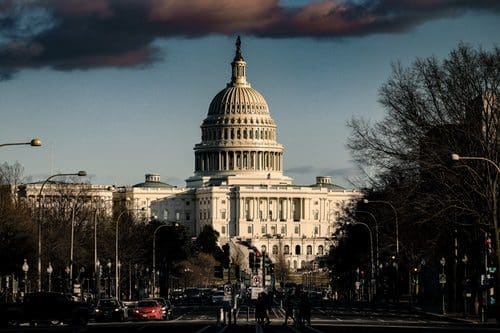Politicians in Washington, D.C. are considering legislation that will limit Texas consumers’ access to local content while further enriching large satellite TV companies. Congress is considering something called the Satellite Television Extension and Localism Act Reauthorization (STELAR), even though it was set to expire. From what I can tell, reauthorizing this law will hurt rural Texas consumers.
About 30 years ago, the newly created satellite TV companies were having a difficult time competing with cable. Congress decided to pass legislation to give them discounted compulsory copyright licenses that cut costs for these new companies and leveled the playing field between cable and satellite. This legislation hurts Americans who are in underserved markets and it makes sense for politicians who support the idea of competition and free markets to take a hard look at the ramifications of a reauthorization of STELAR.
In San Angelo and Victoria, Texas, no local broadcast is available for those using DirectTV. This lack of service is a direct cause of the federal law being in place, and reauthorization would deny the consumers in this area access to local news, weather, and emergency information. In Texas, Mother Nature can often strike with little warning with deadly consequences. Rural communities need access to life-saving information from local sources. A reauthorization would provide an incentive for giant satellite companies to continue to deny the people of Texas in these cities access to vital local broadcasts.
When the law was originally passed, there was a need for a temporary law to level the playing field. The satellite companies were small while the cable companies were well-connected and dominant. Now, DirectTV is a $235 billion company and Dish is worth about $17 billion. These big companies don’t need federal help, nor do they deserve crony legislation that gives them an unfair advantage over their competition. They are all grown up now.
The law, if allowed to continue, provides a discounted compulsory license for satellite retransmission of distant or imported broadcasts to underserved households. It also exempts from retransmission consent requirements to carry these out of market signals by satellite providers. In addition, the law’s extension would require that broadcast TV and pay companies negotiate carriage of local broadcast signals in good faith. No broadcaster has ever been found out of compliance with this last provision, and reauthorization of that provision is clearly unnecessary.
As for the other two, they have outlived their usefulness. The discounted license is rendered unnecessary by the fact that the satellite companies, broadcast, and cable are all able to negotiate on equal footing. The distant signal license under the law allows out-of-market signals to be imported to about 500,000 households instead of local content. The royalties are discounted pursuant to the law and this provides a subsidy to satellite companies at the expense of consumers and competitors that is far below the fees negotiated in the markets by other pay-TV providers. This subsidy is outdated and unnecessary.
It is also important to note that this legislation is antithetical to economic freedom. Free markets are necessary to allow competition between cable and satellite in a way that will bring down costs for consumers. Putting a government thumb on the scale will tilt the market in favor of satellite, and consumers will suffer because they are not protected from being denied local content. Texas members should understand the benefits of free-market competition over crony legislation that favors one specific corporate interest. Texas legislators should do their best to take useless and unfair legislation off the books, thus reversing the old axiom, “nothing is more permanent than a TEMPORARY government program. “
Legislation that was sold to the American people with a sunset provision should be allowed to expire. STELAR was drafted as a temporary measure to help the startup satellite TV companies to compete with big cable companies. Now that the state of play has been flipped, with the satellite companies becoming large companies, this law becomes nothing more than a relic. Texas consumers deserve leadership in Washington that doesn’t run the same risk. They can accomplish this by finally cutting useless government. Letting go of the STELAR law is a good first step.
Republican Sens. Ted Cruz and John Cornyn understand the need for the federal government to drain the swamp and get away from legislation favoring one big lobbying interest over another. Texas Republican Rep. Mike Conaway represents the underserved in San Angelo and Rep. Michael Cloud represents the also underserved Victoria consumers. All these Texas members of Congress should stand up to the big special interests and help consumers in a way that restores free markets and competition without government interference.
This is a commentary submitted and published with the author’s permission. If you wish to submit a commentary to Texas Scorecard, please submit your article to submission@texasscorecard.com.





